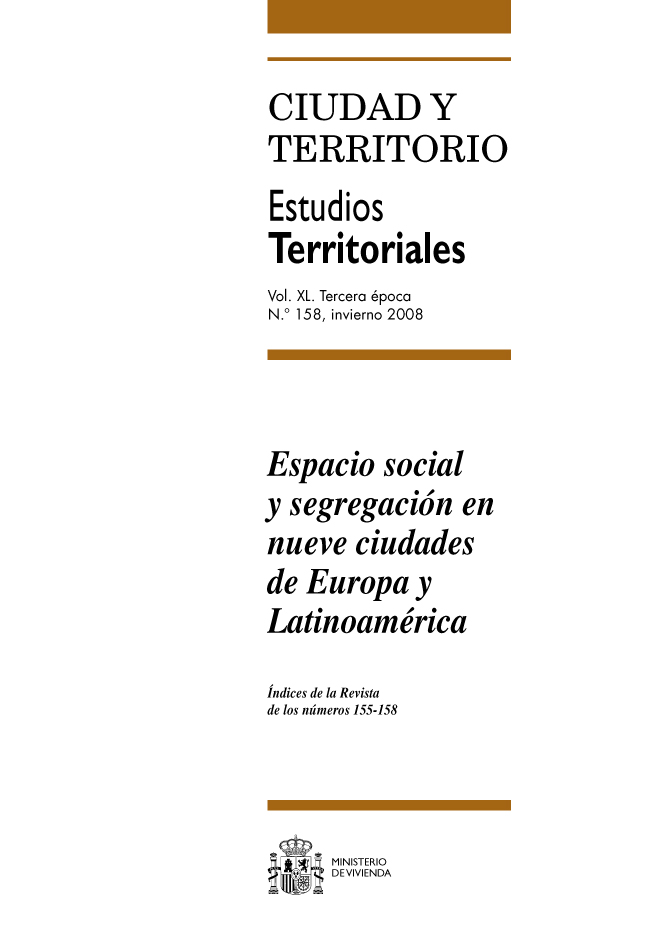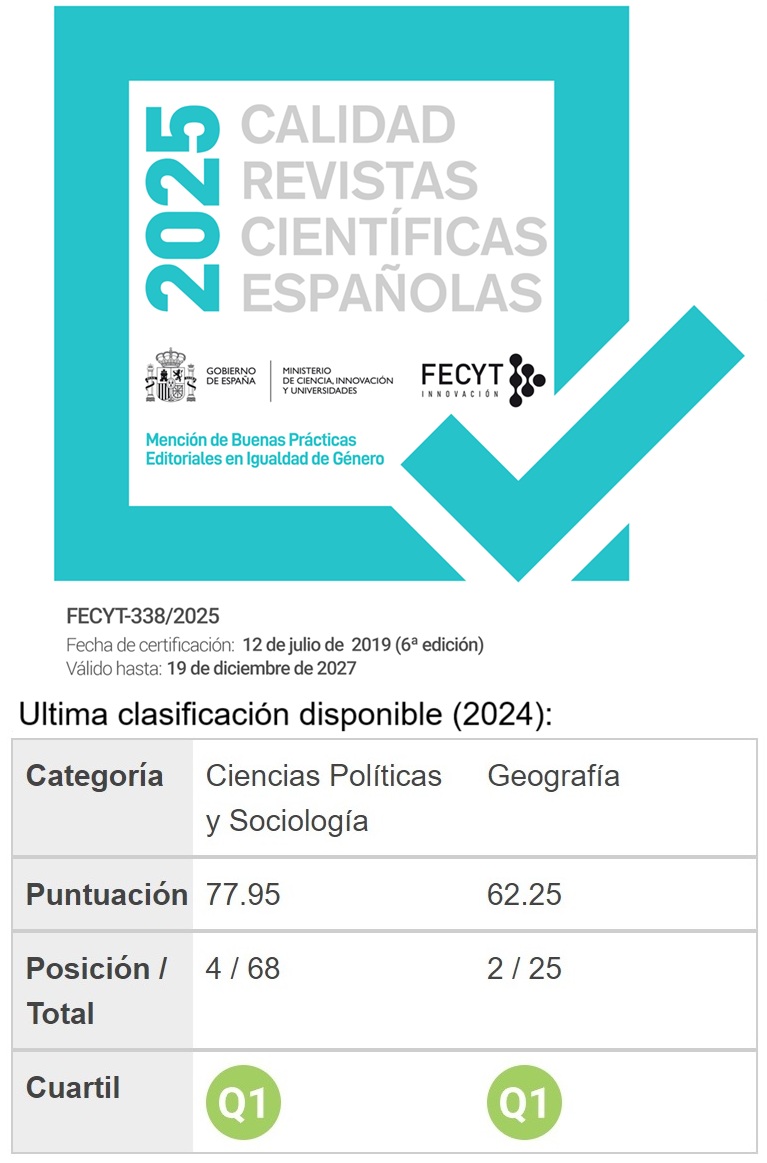Fragmentación socioeconómica y segregación urbana en Montevideo
Palabras clave:
Segregación social, sociología urbana, Montevideo (Uruguay)Resumen
Este artículo tiene como objetivo fundamental, analizar la interrelación entre las desigualdades
sociales y los procesos de segregación urbana en Montevideo. Se trata de una ciudad atípica en el contexto
latinoamericano, que no obstante el “Estado de Bienestar” impulsado en Uruguay a principios del siglo XX,
durante los últimos veinte años, ha estado inserta en contextos de reestructuración y recesión económica
que agudizaron las desigualdades sociales. Sin embargo, luego de la asunción del nuevo Gobierno en 2005,
se impulsaron nuevas políticas y particularmente de combate a la pobreza urbana, que están modifi cando
el panorama social y urbano. En tal medida Montevideo constituye un interesante “Estudio de caso”, para
integrar al análisis comparativo sobre los procesos de polarización y la discusión sobre la dualización urbana.
Así, se plantean en primer lugar, las principales hipótesis y tendencias sobre la desigualdad y segregación
urbana. En segundo término, se ilustran las características de las distintas áreas y estratos sociales, a partir
del procesamiento estadístico de encuestas de hogares e indicadores cuantitativos; y se plantean varios elementos
sobre la heterogeneidad intraurbana, según la percepción de los actores locale
Descargas
Descargas
Publicado
Cómo citar
Número
Sección
Licencia
Derechos de autor 2008 Danilo Veiga, Ana Laura Rivoir

Esta obra está bajo una licencia internacional Creative Commons Atribución-NoComercial-SinDerivadas 4.0.
Sin perjuicio de lo dispuesto en la legislación vigente sobre Propiedad Intelectual, y conforme a la misma, el/la los/las autor/a/es/as que publiquen en CyTET cede/n a título gratuito, de modo no exclusivo y sin límite temporal al Ministerio de Transportes, Movilidad y Agenda Urbana los derechos para difundir, reproducir, comunicar y distribuir en cualquier formato actual o futuro, en papel o electrónico, la versión original o derivada de su obra bajo licencia de Creative Commons Reconocimiento-NoComercial-SinObraDerivada 4.0 Internacional (CC BY-NC-ND 4.0), así como para incluir o ceder a terceros la inclusión de su contenido en índices, repositorios y bases de datos nacionales e internacionales, con referencia y reconocimiento en todo caso de la autoría del mismo.
Además, al realizar el envío, el/la los/las autor/a/es/as declara/n que se trata de un trabajo original en el que se reconocen las fuentes que han sido utilizadas en su estudio, comprometiéndose a respetar la evidencia científica y a no modificar los datos originales para verificar o refutar una hipótesis de partida; que el contenido esencial del mismo no ha sido publicado previamente ni se publicará en ninguna otra obra o revista mientras esté en proceso de evaluación en la revista CyTET; y que no se ha remitido simultáneamente a otra publicación.
Los autores deben firmar un Formulario de Cesión de Derechos, que les será enviado desde la Secretaría de CyTET una vez se acepte su artículo para ser publicado.
Con el objetivo de favorecer la difusión del conocimiento, CyTET se adhiere al movimiento de revistas de Open Access (OA) y entrega la totalidad de sus contenidos a diversos índices, repositorios y bases de datos nacionales e internacionales bajo este protocolo; por tanto, la remisión de un trabajo para ser publicado en la revista presupone la aceptación explícita por parte del autor/a de este método de distribución.
Se anima a las/os autoras/es a reproducir y alojar sus trabajos publicados en CyTET en repositorios institucionales, páginas web, etc. con la intención de contribuir a la mejora de la transferencia del conocimiento y de la citación de dichos trabajos.








 Enlace a CyTET en Linkedin
Enlace a CyTET en Linkedin